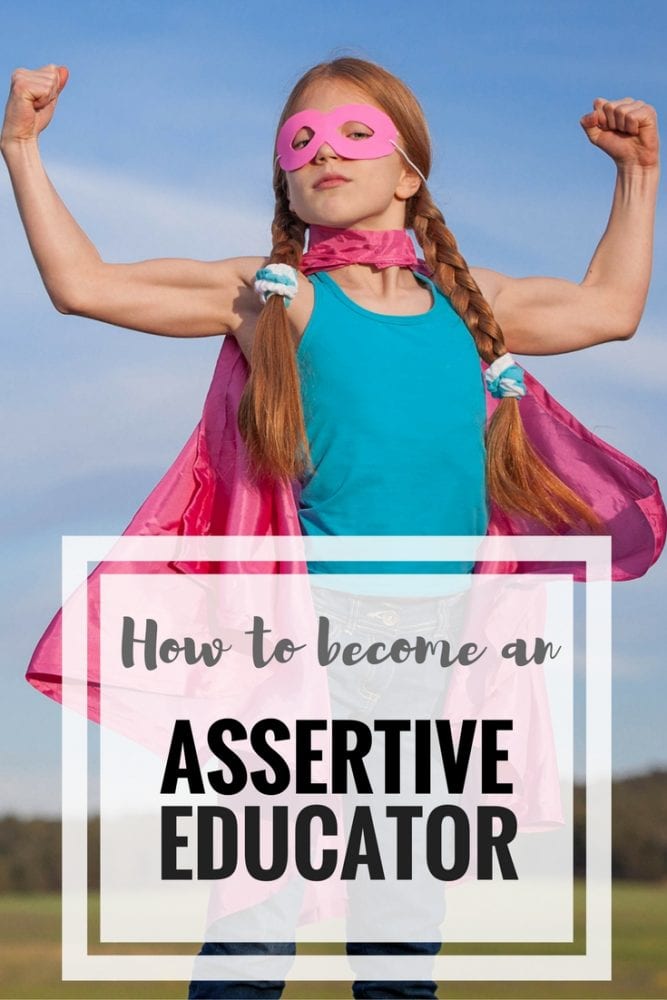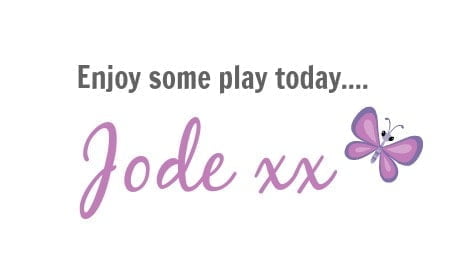Being an assertive educator is not an easy task for many but it can be a learned skill and one I believe is very important for those working in the early childhood profession.
Being assertive means that you express yourself effectively and stand up for your point of view, while also respecting the rights and beliefs of others.

So what does ‘assertiveness” mean to you when working with children and families? It might mean…
- Aiming to work with families and children rather than against them
- Being clear about what your role is and what skills, expertise and values you offer
- Becoming aware of when you should exercise those rights to strive for a balance
- Being able to solve problems more effectively rather than waiting for others to fix it. Making sure you don’t revert to ‘victim’ thinking and behaviour.
- Not trying to get your way ‘at all costs’ or being intimidating or a bully to make sure you get your point across – whether with adults or children.
- Ensuring you learn and use effective assertive communication techniques and strategies
- Treating others with respect, fairness and empathy while still identifying and expressing your needs and wants satisfactorily.
- Believing that you play an important role and provide a professional service and therefore expect to be treated with respect and dignity at all times.
- First valuing yourself and your rights before asking others too.
- Remember that your rights, need for payment and respect are just as important as everyone else’s no matter the sob story you receive. However, also understand that your rights are not more important than anyone else’s – including young children who deserve to receive the same respect and level of fairness.
- Not sitting around feeling sorry for your situation and waiting for the other party to recognise and understand what you need if it hasn’t been expressed.
- Not feeling guilty because you expect to be paid for your services and skill – you have the right to feel valued…as do others.
- Remembering that people are responsible for their own behaviour, you can only control yourself. When using assertive statements you might encounter anger and resentment…and that’s ok…it is their right but not your issue to take on.
- Understanding that it is ok to stand up for yourself and confront parents, colleagues or superiors who challenge your rights
- Knowing what your personal limits are, what you aren’t comfortable with and be prepared to offer alternatives rather than be taken advantage of because it is ‘easier’
- When addressing a challenging situation or event with children try to embrace empathy and think about what they might be feeling first before jumping in and trying to meet or enforce your own needs and wants
Basic Assertive Communication Techniques – 10 simple strategies for you to try
- Express empathy – recognise how others are viewing the same situation or event before stating what it is you ‘need’ or ‘expect’.
- Use simple ‘I’ statements such as “I want”, “I feel”, “I disagree”, or “I need” These work just as well with adults as they do children. Practice – they will begin to come to you easily I promise!
- Use your tone and words to become firmer as discussion begins to escalate. Reinforce your position while maintaining respectful communication.
- Rehearse what you want to say…before you need to say it!
- Write it down beforehand or send rather than say as a first step –take steps to prepare and work through want you want to say and the message you feel is most important to convey. I often use this option as I can express myself better through writing.
- Keep emotions in check when trying to resolve a conflict. Crying, yelling and angry words will impact negatively on your resolution. Try to remain calm and take lots of deep breaths!
- Practice saying NO and MEAN IT. Keep explanations brief and be direct. Educators often give in and say yes because they want to help children and families but this does nothing for your sanity…or your professional role.
- Assertive communication isn't just verbal. Try to act confident even if you aren't feeling it. Make regular eye contact. Maintain a positive facial expression if you can and don’t use dramatic gestures. Practice assertive body language in front of a mirror so you feel more comfortable with this technique.
- Use a language style that is appropriate for who you are talking to – adult or child.
- Start small and practice your new techniques in mild situations first. Think about how it felt and what you might change next time.
Why do I want to be an assertive educator?
- Provides the best outcomes when working with children
- Allows the development of positive, trusting relationships with children, parents, carers and other staff
- Encourages appropriate behaviour management techniques and the embedding of these techniques
- Ensures children are offered clear guidelines and expectations and are therefore able to understand and follow those expectations
- Ensures respectful communication, body language and interactions.
- Learning how to be assertive can support educators to be excellent role models to children – they listen to children and allow a child’s voice to be heard before speaking or negotiating.
- Demonstrates to children and other adults that they can express thoughts and feelings respectfully.
- Assertive behaviour will help you to earn respect, manage stressful situations and work on resolving conflict more effectively
- Will support you to gain more job satisfaction whether working on your own in a family day care situation or in a large centre.
- Using an assertive interaction style allows educators to be sensitive to the needs of children and encourages regular interactions between educators and children that are based on mutual respect.
- Being an assertive educator is the best way to develop and maintain effective relationships and promote positive behaviour in an early year’s environment
As I mentioned at the beginning of this article learning to be assertive can be difficult but it is well worth it if you persevere and develop your own unique style.
By developing this important skill the children you work with will be offered the best outcomes for the development of their individual learning journey….perhaps you will be surprised at what you can achieve on your own learning journey too!

If you want to connect with other early childhood educators to network, inspire and share ideas why not join my Empowered Educator Facebook Community
Pin the image below for future reflection….


I just wanted to thank you for your assertive post, as you said it does not come easy for
some people including myself. Slowly I am learning to be more assertive to those around
me. I find work colleges the scariest not sure why but I am getting stronger with practice.
Thank you again.
Thanks so much for your feedback Julia – I’m so glad it was helpful for you. Many in the field can be overbearing but stand your ground, come from a place of calm and confidence and you will be way above them all. Keep practising, it gets easier I promise you xx
Awesome blog! So much good advice & downright good stuff that we all need reminding about – especially at this time of year! Thank you Jodie. I so appreciate all you do to empower us educators.
Thanks Debbie, so glad you found it helpful! And thankyou for taking the time to leave such lovely feedback, means a lot! x
I so needed your advice, thank you so much this information will be very helpful for me to improve on this skill. Its always been a problem for me and these tips will assist me I’m sure. I love your blogs Jodie they are so helpful and interesting.
Thank you
Thanks so much for the feedback Kathy – I’m so glad you found the tips helpful. Becoming more assertive is an ongoing skill so don’t feel like it has to happen all at once!!